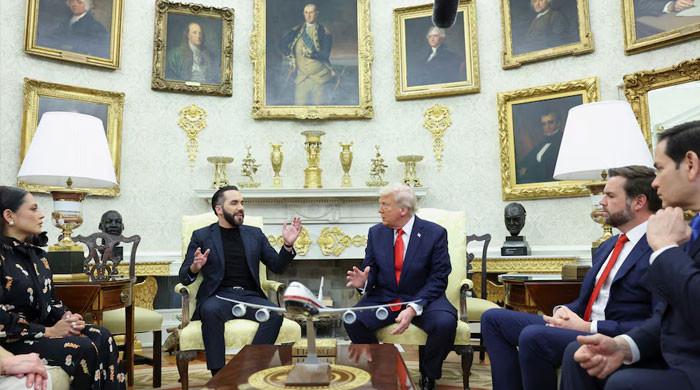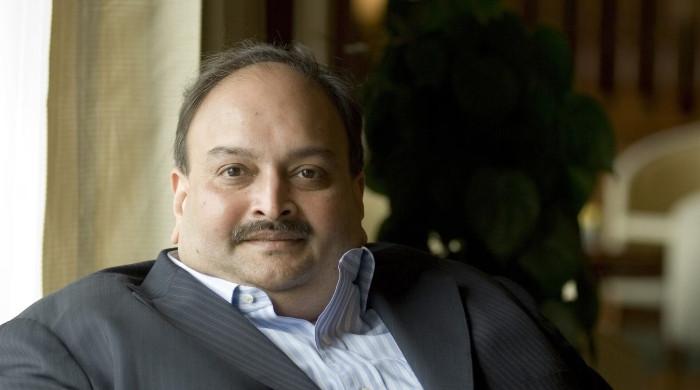What you need to know about elections in Canada
Six parties are in the running for Canada’s national elections in which healthcare and climate change have been the major issues
October 20, 2019
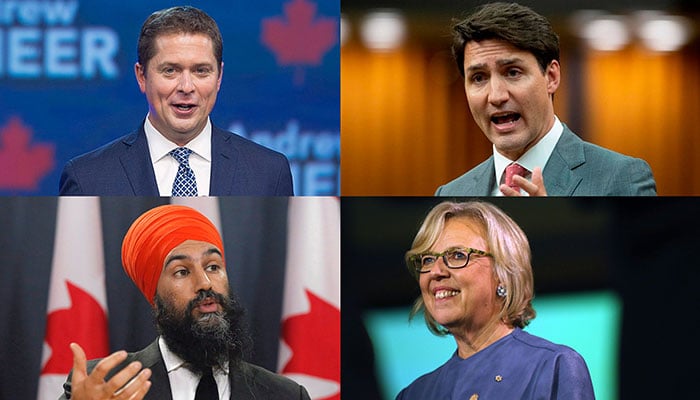
TORONTO: Canadians will head to the polls on Monday (October 21) to elect a new national government with six parties vying for seats in parliament. The two front-runners are Prime Minister Justin Trudeau’s Liberal Party which swept the last elections and the Conservative Party led by Andrew Scheer. For the first time in Canada’s history, a minority candidate Jagmeet Singh of the NDP is running for prime minister with the Green Party’s Elizabeth May the only woman candidate. Former Conservative leader Maxime Bernier is contesting from the platform of the newly formed PPC Party while Yves-Francois Blanchet is running form the Bloc Quebecois.
The Canadian parliament comprises 338 seats and to gain a majority, a party needs to secure 170 seats. Under the present set-up Trudeau’s Liberal Party has 177 seats in parliament followed by the Conservatives with 97 and NDP with 40.
According to poll averages compiled by CBC News, the Liberal (31.7%) and Conservative (31.4%) parties are neck and neck with the NDP (18.2%) a distant third. Unlike the last elections, it is highly unlikely that any party will come out with a majority with whoever gains the most seats looking for the support of other parties to pass legislation.
Read also: In likely tight Canadian vote, deciding who governs could take weeks
Major issues
Healthcare remains the most important issue for Canadians ahead of the polls according to a recent survey conducted by Ipsos followed by climate change which saw the highest increase in importance since campaigning began.
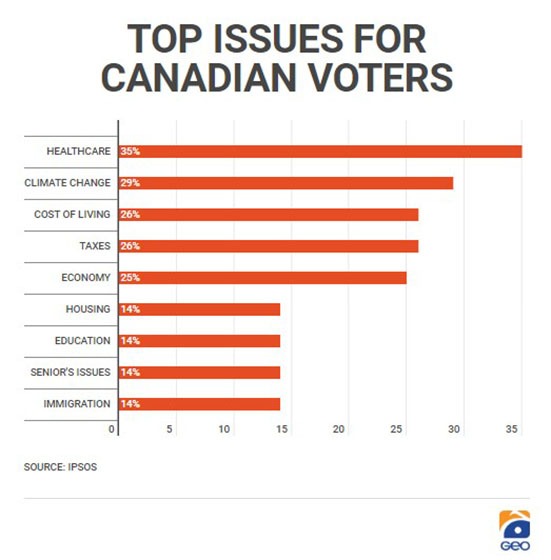
All parties have called for reforms in the present structure of the healthcare system with the Liberal and NDP parties advocating for a national pharmacare program. The program has been dismissed by the Conservative Party who seek pharmacare only for those individuals not covered at work or provincially.
On the issue of climate change, the Liberal and Conservative parties both stand committed to Canada meeting targets of the Paris agreement. The Liberal Party wants net zero emissions by 2050 while the Conservative Party wants to eliminate the carbon tax. The NDP has proposed spending $15 billion to cut greenhouse gas emissions.
For millennials, a major issue is a rising cost of living and the difficulty to afford new homes. All three of the leading parties have advocated affordable housing with the Liberals and NDP wanting to build 100,000 and 500,000 homes respectively over 10 years. The Conservatives have advocated easing regulations on the construction of new homes and mortgages for first-time buyers more attainable. The Liberals and NDP also want to increase the minimum wage to $15 an hour while the Conservatives want to create new jobs by building pipelines.
Read also: Trudeau calls election after dissolving Canadian parliament
Immigration while not a top-five issue for Canadians is one that is of importance to minority communities. The Liberal Party wants to increase the number of immigrants to 350,000 by 2021 while the Conservative Party has stressed economic immigration and access for refugees through a heightened screening process. The NDP has advocated giving priority to family reunification as part of its immigration policy.
Major controversies
The campaign trail has not been without controversies for leading candidates Trudeau and Scheer.
On September 18 Time magazine published a picture of a 29-year-old Trudeau in brownface during his teaching days in 2001. More photos of Trudeau who has been a champion for Canadian multiculturalism followed. “I’ve let a lot of people down… and I stand here today to reflect on that and to ask forgiveness,” Trudeau said the day after the scandal broke, however, the prime minister told reporters he was “wary” of ruling out the existence of more pictures.
Read also: Canadian PM Trudeau admits to racist 'brownface' makeup
In early October it was revealed that Conservative leader Scheer held dual Canadian-US citizenship. While under Canadian law members of parliament are not barred from holding dual-citizenship, the Conservatives were quick to point out that Scheer had decided to renounce his US citizenship when he was made party leader. In the past, Conservatives had accused leaders of the Liberal Party and NDP of holding dual-citizenship, while Scheer in a 2005 blog post had raised concerns about former governor general Michaelle Jean holding Canadian and French passports.
What to expect?
It is expected that no one party will come out with a majority and according to seat projections by CBC News, the Liberals will be short 31 seats for the 170 required. The Conservatives are expected to have 24 more seats in parliament with the Bloc Quebecois potentially gaining 30 seats.
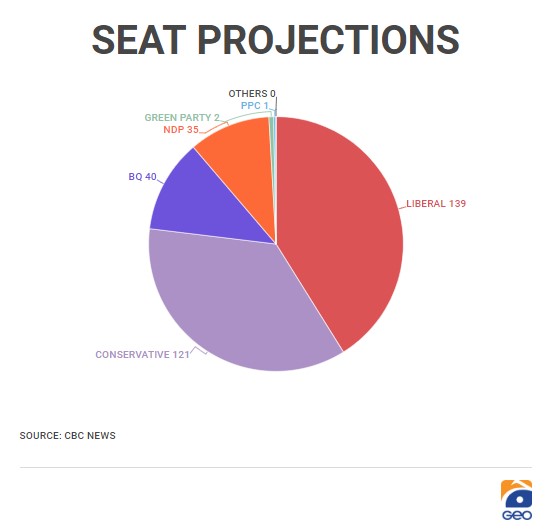
Mohsin Abbas is a freelance journalist based in Toronto.





